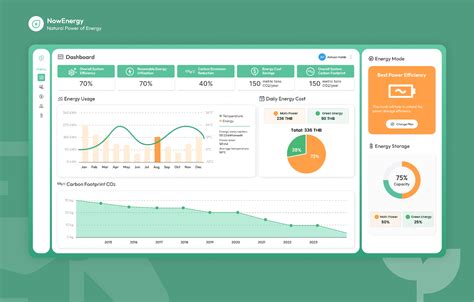Title: Revolutionary Energy Management: The Role of Artificial Intelligence in the Cryptocurrency Space
Abstract:
The increasing demand for energy has led to growing concerns about its sustainability, especially in industries such as cryptocurrency mining. Traditional energy management systems often struggle with inefficiency, scalability, and security. Artificial intelligence (AI) is changing the way energy is managed, enabling more efficient and sustainable operations. This article examines current trends and innovations in AI for energy management in the cryptocurrency space.
Introduction:
Cryptocurrency mining has become a significant contributor to the global energy landscape and requires a huge amount of computing power to process complex mathematical equations. The energy consumption associated with this process is significant, contributing to greenhouse gas emissions and straining local power grids. Traditional energy management systems have limitations in effectively managing such large energy demands.
AI-Powered Energy Management: Trends and Innovations:
- Predictive Analytics: AI-powered predictive analytics enables organizations to predict energy demand based on historical data, weather conditions, and other factors, enabling proactive optimization of energy consumption.
- Machine Learning (ML) Algorithms: ML algorithms are used to analyze large data sets and identify energy consumption patterns, enabling the development of personalized energy-saving strategies tailored to individual users or devices.
- Internet of Things (IoT): IoT sensors monitor energy consumption in real time, provide valuable energy consumption insights, and enable automated energy consumption optimization based on historical trends.
- Cloud Solutions: AI cloud solutions offer scalability, flexibility, and cost-effectiveness to manage large energy demands.
- Quantum Computing: The integration of quantum computers with AI is expected to further improve predictive analytics and optimize energy management in the near future.
Applications:
- Cryptocurrency Mining Farms: AI-powered energy management systems optimize energy efficiency and reduce the load on local networks, ensuring stable power supply to cryptocurrency mining farms.
- Data Centers: AI-powered cloud solutions enable data center operators to optimize energy consumption, reduce carbon emissions, and improve operational efficiency.
- Smart Grids: AI-driven predictive analytics and IoT sensors monitor energy consumption in real time, enabling optimization of energy distribution and reduction of peak demand.
Challenges and Limitations:
- Data Quality and Availability:
Ensuring high-quality data is essential for effective AI-powered energy management systems.
- Integration with Existing Infrastructure: Seamlessly integrating AI solutions with existing energy infrastructure is a major challenge.
- Cybersecurity: Protecting sensitive energy-related data from cyber threats remains a pressing issue.
Conclusion:
AI has the potential to revolutionize energy management in the cryptocurrency space, enabling more efficient, sustainable, and secure operations. As energy demand continues to grow, organizations must prioritize AI-powered energy management solutions that address scalability, security, and integration challenges. By harnessing the power of AI, we can alleviate environmental concerns, reduce costs, and create a more resilient energy infrastructure.
Recommendations:
- Invest in AI research: Continue to fund research and development in AI for energy management to stay ahead of new trends and technologies.
2.



